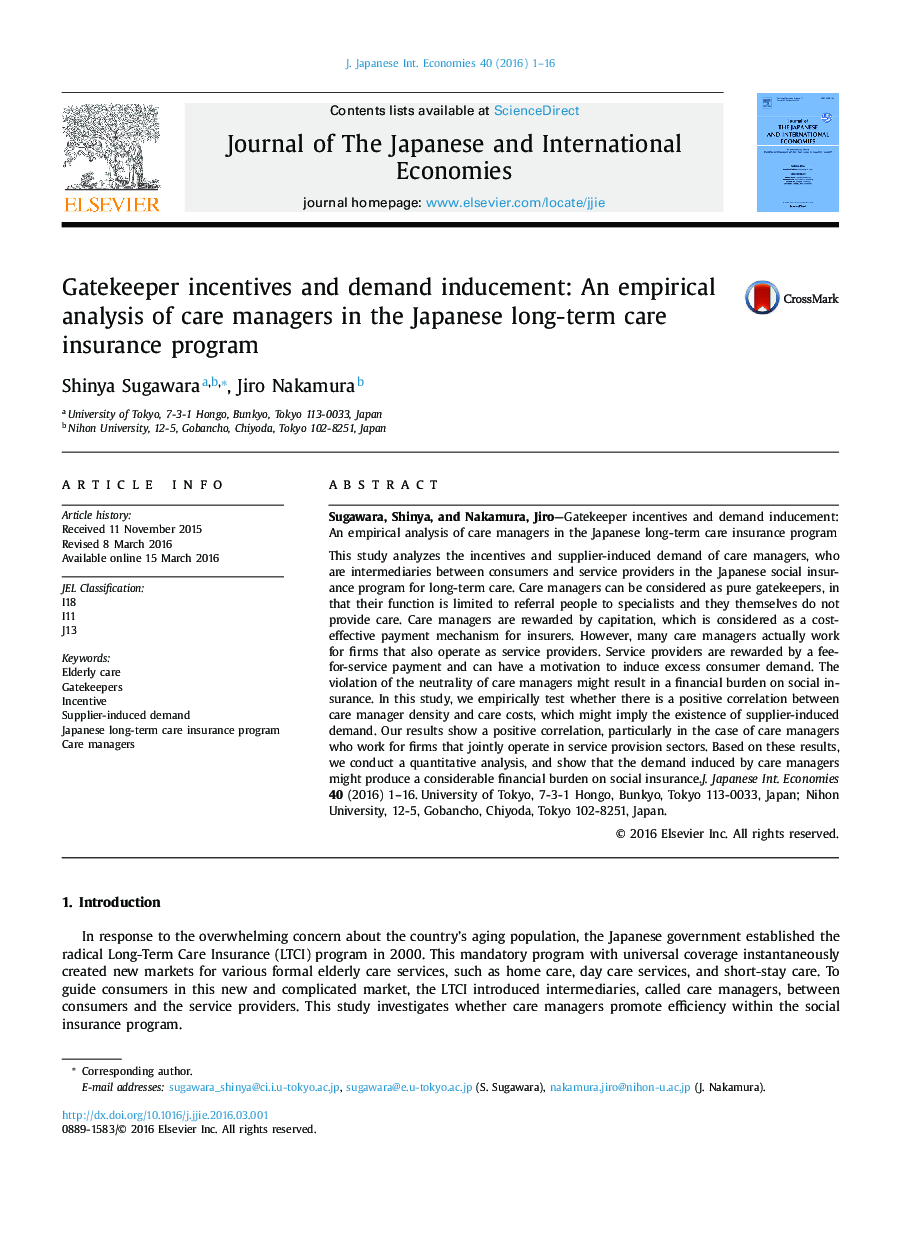| Article ID | Journal | Published Year | Pages | File Type |
|---|---|---|---|---|
| 964883 | Journal of the Japanese and International Economies | 2016 | 16 Pages |
•We analyze the incentives and supplier-induced demand of care managers in the Japanese LTCI.•Care managers who work for firms that jointly operate in service provision sectors are shown to induce demand.•The violation of the neutrality of care managers might result in a financial burden on social insurance.
This study analyzes the incentives and supplier-induced demand of care managers, who are intermediaries between consumers and service providers in the Japanese social insurance program for long-term care. Care managers can be considered as pure gatekeepers, in that their function is limited to referral people to specialists and they themselves do not provide care. Care managers are rewarded by capitation, which is considered as a cost-effective payment mechanism for insurers. However, many care managers actually work for firms that also operate as service providers. Service providers are rewarded by a fee-for-service payment and can have a motivation to induce excess consumer demand. The violation of the neutrality of care managers might result in a financial burden on social insurance. In this study, we empirically test whether there is a positive correlation between care manager density and care costs, which might imply the existence of supplier-induced demand. Our results show a positive correlation, particularly in the case of care managers who work for firms that jointly operate in service provision sectors. Based on these results, we conduct a quantitative analysis, and show that the demand induced by care managers might produce a considerable financial burden on social insurance.
